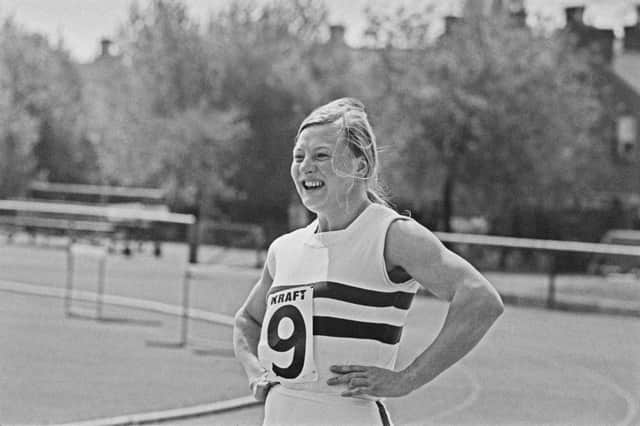Paul McElhinney: Munich 1972 – an Olympic clash of sport and politics


Names like Mark Spitz, Shane Gould, Olga Korbut, Valery Borzov and Dave Wottle came out of that Olympics as household names such was the level of their achievements there. Local girl, Mary Peters, became the gold medal heroine of the pentathlon and for many years subsequently, flew the flag for sport in Northern Ireland. As a result of her successes at the most highly-charged and eagerly watched of Olympics, Mary joined the likes of George Best, Fred Daly, Danny Blanchflower and others in the pantheon of Northern Ireland sports stars.
Never to be forgotten from that year’s Olympics was the kidnap and assassination of eleven Israeli athletes by the Black September organisation. Although threatened from going ahead, the sporting events eventually took place at official insistence despite the ugly residue of those terrorist acts.
Advertisement
Hide AdAdvertisement
Hide AdWhat shocked the world was all too familiar to a Northern Ireland population already afflicted for a number of years by a terrorist campaign of violence. The world watched on their TV sets as the grisly terrorist drama unfolded. Sport lost its innocence during that fortnight as it unwittingly got entangled in the murky world of international politics. Now, we have become almost inured to mass terrorist and other violent events being beamed into our living rooms. Munich in 1972 is seen as just one in a line of sad and vicious tragedies. At the time, it was one of a kind.
Happily, it is not just for that incident that the 1972 Olympics will be remembered. An incomparable medley of top-level sporting achievement was on display.
The young, diminutive Russian gymnast, Olga Korbut, charmed the world with her performances across a range of gymnastic disciplines.
In the pool, the name of Mark Spitz became legendary. Spitz, the US swimmer, won a record seven gold medals at that Olympics, a record that was to last until 1996 when it was broken at Atlanta by Mike Phelps. Australian woman Shane Gould won three swimming gold medals at Munich.
Advertisement
Hide AdAdvertisement
Hide AdValery Borzov, the stocky, explosive Soviet sprinter (from Ukraine) won both the 100 and 200 metre sprints, a not too common double victory, and in the process chalked at least a psychological victory against the Americans in the continuing Cold War of the era. Lasse Viren, the dogged Finn, took both the 5,000 and 10,000 metres as only a select few have done.
Also in the field of athletics was the notably eccentric Dave Wottle who excelled in the 10km walk, marked out by his awkward gait and his striking red cap.
Notable too was the gripping final of the men’s basketball between the USA and the USSR, considered the most competitive game of basketball ever at the Olympics. The narrow and controversial win by the USSR gave them further bragging rights in the ongoing Cold War conflict.
Of most local interest, of course, was the gold medal victory in the women’s pentathlon of the smiley, benign-looking Mary Peters. Her head-to-head rivalry with the German athlete with the poetically-sounding name, Heide Rosendahl, became an epic struggle right down to the very end. Refreshingly absent was any residual World War Two British-German hostility between the two, with any rivalry based on the healthy sporting competitiveness. Furthermore, instead of terrorist incidents being the staple media diet, for a brief period, the world was able to witness a positive achievement emerging from the province. Mary Peters was the face of this alternative perspective and a worthy ambassador.
Advertisement
Hide AdAdvertisement
Hide AdThe 1972 proceedings also marked a “coming of age” for the Olympics. After the terrorist events, no longer was security a minor matter, a trend that has only been magnified over the subsequent years and particularly since 9/11.
The debate over politics in sport has rumbled on as the two spheres of activity inevitably intersect with one another. Many point to the contaminating effect of politics on sport but is it realistic to rigidly ringfence the two in a highly interdependent and interconnected world?
What is certain is that the world has seen no other Olympics (before or since) quite like that which took place in Munich in 1972. For sheer drama, excitement and personal and team achievements, it is unrivalled.
Munich previously had been famous for Beer Hall Putsches and a failed peace initiative in the run-up to World War Two. Prior to Munich, probably the most notable Olympics was at another German city, Berlin, in 1936, presided over by Adolf Hitler.
Advertisement
Hide AdAdvertisement
Hide AdThrough the display of many examples of sporting prowess and with the explosive political and terrorist backdrop, the 1972 Olympics indelibly printed its reputation as the most remarkable Olympics of all time.
• Paul McElhinney, a lecturer, a writer and former official in the Department of the Taoiseach, has written many articles in Irish and international journals and is the author of ‘Lion of the RAF’, a biography of Air Marshal Sir George Beamish.